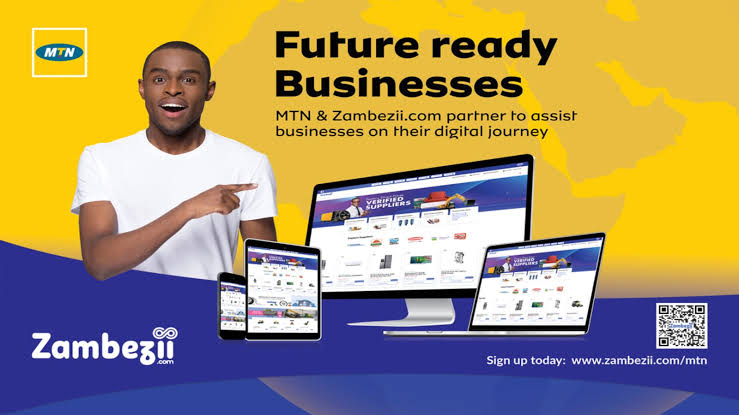Why Zambezii , Zambia’s Promising E-commerce Startuo Monetised Its Platform
The monetisation of its B2B e-commerce platform has been described as part of a growth strategy by the Zambian startup Zambezii. Zambezii’s B2B e-commerce platform leverages technology to give manufacturers, wholesalers and distributors exposure across markets all over the continent of African.. Because it is a very simplified solution that reduces the barriers to entry, Zambezii is open to all companies from across Africa, and allows users to set up a virtual store and list products. Buyers can place orders and pay via digital payments and bank transfers.

The platform is aimed at businesses interested in showcasing their products in African markets, but do not want to handle the process of digitisation themselves. “African businesses are highly reliant on physical trade and are restricted to the countries they physically operate in. We want to change how they do business with each other and the world,” said Ali Karnib, co-founder and managing director of Zambezii.
Read also:Paratus Deploys 100Gig Fibre Ring in Zambia
“We provide a digital platform that empowers local businesses on their quest to reach out to the continent as a whole, bridging the gap between business suppliers and buyers by providing a localized digital solution to boost regional trade, enhance procurement, and assist businesses to trade online.”
Zambezi was formed as e-commerce on the continent is highly focused on B2C, with the B2B market underserved. “When looking at our target market, we identified the following: a heavy reliance on physical interactions, the need to travel distances for multiple quotations, close to no online presence, operating in single markets, products shared via WhatsApp images, lack of product information and specifications, orders are made physically or by phone, orders are either logged on Excel or written on paper,” said Karnib. Zambezii claims itself to be the solution to all these pain-points, and has onboarded 200 suppliers and 240 buyers under a freemium model it ran under for its first 18 months. “We’ve seen our daily visitors jump from an average of 200 users a day in 2019 to 2,000 users a day in 2020,” Karnib said.
Read also:War of Words Between South Africa and Zambia Over Bank Of Zambia Governor’s Sacking
The startup recently launched its subscriptions model having run a freemium version for the first 18 months of its life, and has now seen three months of revenues. It also charges for a “concierge service” through which it procures certain products on behalf of its clients, design services that help businesses with no brand identity, photography services, and advertisements. Zambezii also recently partnered with MTN Zambia to assist MTN business clients in digitising and trading online. Self-funded and based in Lusaka, it plans on expanding to new markets in 2021.
Read also:Seven African tech startups receive $700,000 funding from MEST Africa
“We have identified two countries in Eastern Africa that we would like to move into. Our end-goal is to expand all over Africa to connect businesses on the continent with one another,” said Karnib.
Kelechi Deca

Kelechi Deca has over two decades of media experience, he has traveled to over 77 countries reporting on multilateral development institutions, international business, trade, travels, culture, and diplomacy. He is also a petrol head with in-depth knowledge of automobiles and the auto industry

